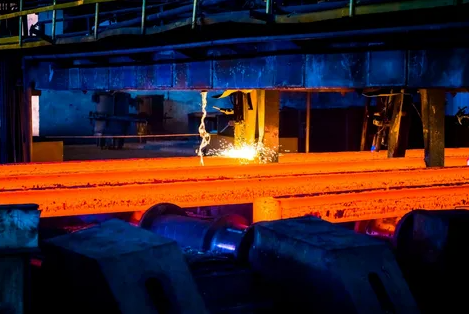At the end of July, Vietnamese steel company Hoa Sen Group made an unexpected announcement: it was abandoning the construction of a $ 10 billion production complex.
“The current objective situation is no longer in line with the original strategic goals,” the company said. The group originally proposed this project in 2016. He had to build several blast furnaces that together could produce 16 million tons of steel per year.
Meanwhile, in China, Chen Derong, president of the country's largest steel producer, Baowu Steel Group, recently announced a five-year plan to invest $ 2.8 billion in Hubei province.
Hoa Sen's retreat and Baowu Steel's big step forward illustrate how the pandemic has divided steelmakers into winners and losers - winners in China and losers everywhere.
Amid a pandemic that is sharply increasing demand for steel in many parts of the world, Hoa Sen is not the only one retreating in an attempt to survive. Prominent Asian players, from Japan's Nippon Steel to South Korea's Posco, are shutting down blast furnaces and scrapping capital plans.
Analysts believe these steps are overdue. “The pandemic has highlighted the lagging structural reforms of steel mills,” said Atsushi Yamaguchi, senior analyst at SMBC Nikko Securities.
Asian steelmakers are rushing to close their high-value factories and cut their capacity. In July, Posco announced that it would close the furnace at its Pohang plant, which will be able to produce up to 1.3 million tonnes of steel per year, or 3% of Posco's total capacity. The company said it will also consider closing or upgrading another furnace as early as 2025.
The announcement came three years after Posco first announced it would close the oven. The death sentence seems imminent this time around as the pandemic stifled domestic steel demand and revenues, which fell 16% in April-June.
Japan's annual steel production is expected to be less than 80 million tonnes for the first time in 52 years.
Wherever they are other than China, steelmakers are gearing up for huge net losses.
In February, Nippon Steel announced that it would permanently close two blast furnaces in Hiroshima and Wakayama prefectures over the next few years.
And in a capital expenditure review, Japan's largest steel company has cut 300 billion yen ($ 2.8 billion) from its original 2018-2020 target. Business investment spending, including mergers, will be cut by 10% from the original 2018-2020 target of 600 billion yen, according to a company spokesman. “We will carefully and rigorously select targets,” the spokesman said.
JFE Steel, Japan's second player, announced in March that it will close the blast furnace by 2023 to cut production capacity.
Coronavirus Crisis Rebuilding Asia's Steel Leaders

|
|
Azovpromstal® 18 September 2020 г. 12:14 |





